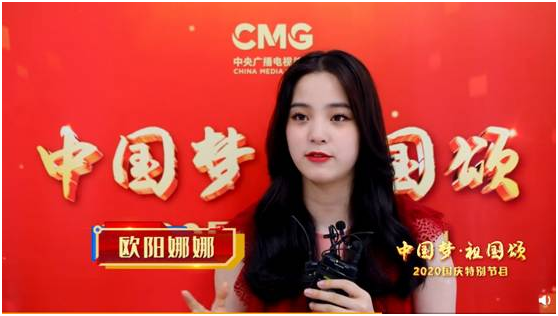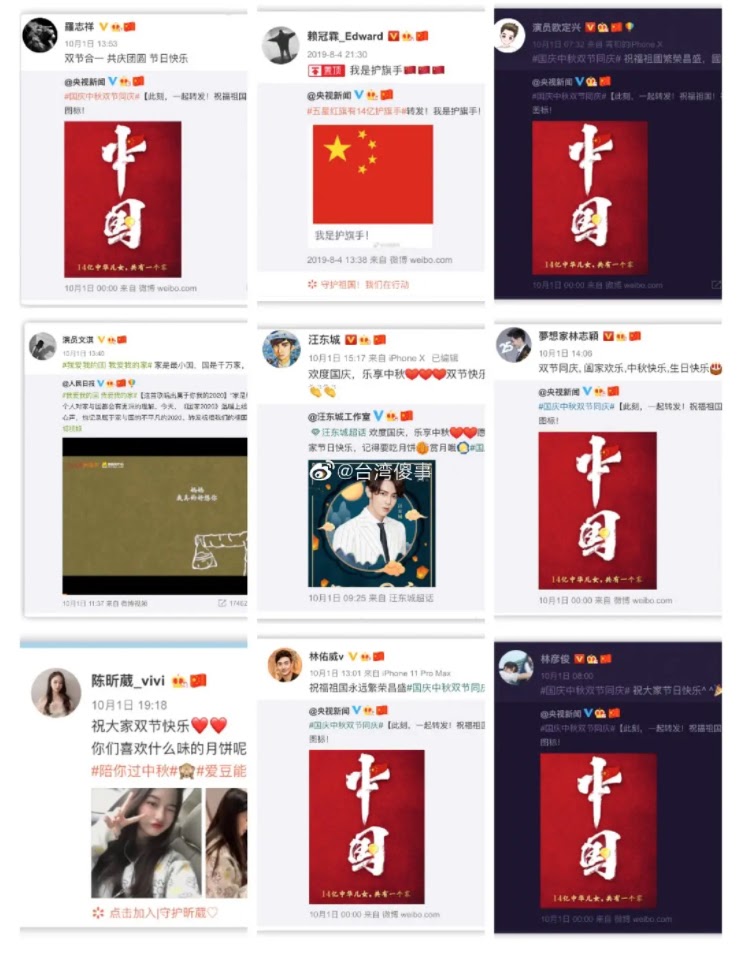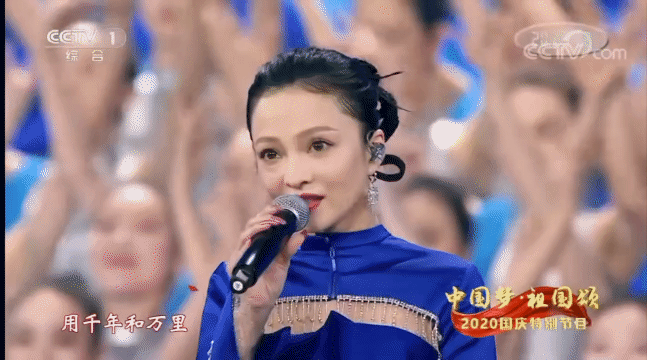‘Silence is pro-independence’: Taiwanese artists feel pressure to hint political leanings on China’s National Day
But amidst all the holiday wishes, those who didn’t join the chorus of congratulations have become targets of nationalist Chinese ire, with many suspecting that their silence was intended to avoid being associated with pro-unification views in an environment of heightening tensions between mainland China and Taiwan.

On October 1, China’s National Day, a number of Taiwanese artists took to social media — primarily services accessible and popular in mainland China, like Weibo — to commemorate the establishment of the People’s Republic of China (PRC) in 1949 and celebrate the Mid-Autumn Festival, which happened to be on the same day this year.
But amidst all the holiday wishes, those who didn’t join the chorus of congratulations have become targets of nationalist Chinese ire, with many suspecting that their silence was intended to avoid being associated with pro-unification views in an environment of heightening tensions between mainland China and Taiwan.
Silly things about Taiwan (@台湾傻事), a pro-unification Weibo account dedicated to “poking fun at” the island, has been taking notes of which Taiwanese public figures marked the anniversary of PRC’s 71st anniversary and identified them as Chinese in social media posts. The bare minimum expected from Taiwanese stars was to share celebratory posts originally published by government media stalwarts.

Aside from sharing, some artists went a step further by adding more explicit notes to express their political leanings. “Two holidays fell on the same day and brought double luck. My heart belongs to China,” Taiwanese actress Xú Jiéér 徐洁儿 wrote.
Outside of the digital space, perhaps the most overt way for a Taiwanese artist to make a public stance on politics is to appear on the National Day galas hosted by CCTV. This year, Taiwanese pop stars Nana Ou-Yang (欧阳娜娜 Ōuyáng Nànà) and Angela Chang (张韶涵 Zhāng Sháohán) took part in the grand show to celebrate PRC’s birthday, despite fine warnings from Taiwan’s Ministry of Culture, who, before the gala, urged the two artists to “take the interests of Taiwan as a whole as their precondition for doing things.”
While their performances — Ou-Yang singing My Country and Chang singing Guardian — might have alienated a significant portion of their fan bases in Taiwan, mainland audiences showed an outpouring of support, with many praising the pair for “pledging allegiance to PRC” and “leveraging their star power to influence the youth in Taiwan,” which they saw as necessary prerequisites for Taiwanese artists to rake in performance payments and royalties in mainland China.

Meanwhile, a group of Taiwanese artists who had an active presence on Weibo but chose not to post anything on October 1 have come under intense scrutiny. Critics argued that it’s virtually impossible for them to overlook the barrage of patriotic messages shared by their peers and thus their silence spoke volumes about where they stood on issues of Taiwans’ pro-democracy movement and Beijing’s territorial integrity. “Our sensitivity is totally justified. These public figures should feel compelled to choose a side. Many Taiwanese artists were willing to voice their political opinions many years ago, but why did some of them become suddenly tight-lipped on their views in recent years? There should be no excuses for them if they haven’t retired or don’t have internet access,” an internet user wrote (in Chinese).
The phenomenon of Chinese authorities pressuring Taiwanese celebrities to speak out politically has existed for as long as there have been disagreements over whether Taiwan is its own sovereign state or part of China. But the pressure has intensified significantly after the proliferation of social media, which offered a convenient tool for average internet users in China to monitor Taiwanese artists’ online activities, as well as call for them to be more outspoken, or at least clearer, about their political views.





